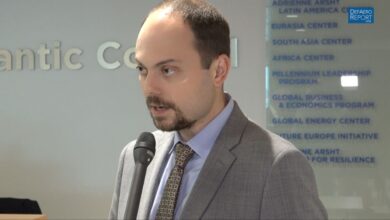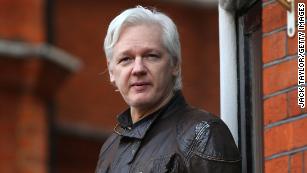
Rights groups urged Egypt's army-backed government on Tuesday to investigate mass killings of protesters by security forces during the dispersal of Muslim Brotherhood sit-ins in August after Islamist president Mohamed Morsy was deposed.
Interim authorities have pressed the crackdown on dissent since then, jailing thousands of Morsy supporters and outlawing the Islamist movement that propelled him to power last year in Egypt's first freely contested presidential election.
The army ousted Morsy after mass protests against his rule.
An alliance of 13 human rights groups said the state prosecutor had yet to investigate and hold members of the security forces accountable “for excessive and unjustified use of lethal force” on August 14, when the police and army broke up two Cairo sit-ins by Morsy supporters.
“There can be no hope for the rule of law and political stability in Egypt … without accountability for what may be the single biggest incident of mass killing in Egypt's recent history on August 14,” said Gasser Abdel-Razek, associate director at the Egyptian Initiative for Personal Rights.
August 14 marked the bloodiest day in a state swoop on the Muslim Brotherhood following Morsy's overthrow on July 3.
The alliance of human rights organizations included Amnesty International and Human Rights Watch. Their statement was issued to coincide with international Human Rights Day.
In the run-up to the security clampdown, thousands of Brotherhood supporters were camped out at the two Cairo sit-ins. The biggest encampment was based around Rabaa al-Adawiya mosque in the northeast of the city.
“RECKLESS SHOOTING”
“A small minority of protesters used firearms that day, but the police responded excessively by shooting recklessly, going far beyond what is permitted under international law,” the rights groups said in their statement.
“The killing of seven police officers during the dispersal of the Rabaa sit-in does not justify the kind of collective punishment of hundreds of protesters and disproportionate use of lethal force that we saw that day,” said Bahey el Din Hassan, head of the Cairo Institute for Human Rights Studies.
The government should set up a fact-finding committee as a first step towards accountability, the statement said.
The Interior Ministry has said the Brotherhood was storing weapons at the protest camps, something the group denied. On Tuesday, an Interior Ministry official said the authorities had not used excessive force to scatter the camps and that Morsy's supporters fired first, forcing the police to strike back.
Besides the August 14 incident, the statement listed four other mass killings of Morsy supporters following his downfall. It gave a death toll of 333 in those incidents, saying three members of the security forces were also killed.
Police brutality fuelled the 2011 uprising against then-longtime President Hosni Mubarak, and reform of the security services has been a longstanding demand among activists.
“For almost three years now, successive Egyptian governments have ignored calls for justice, as police brutality and the accompanying death toll continue to mount with each incident,” Abdel-Razek said in the statement.
Morsy acolytes clashed with security forces on Tuesday at two universities in Cairo. Egyptian universities have seen regular confrontations between Brotherhood supporters and the police.
A government minister said on Monday Egypt will hold a referendum in mid-January on a new constitution seen as an important milestone in the political transition plan drawn up by the army-installed government.
The draft completed by a 50-member assembly last week drops Islamist-inspired provisions written into the constitution approved in a plebiscite last year while Morsy was still in office. Among other changes, it also strengthens the autonomy of the already powerful military.




